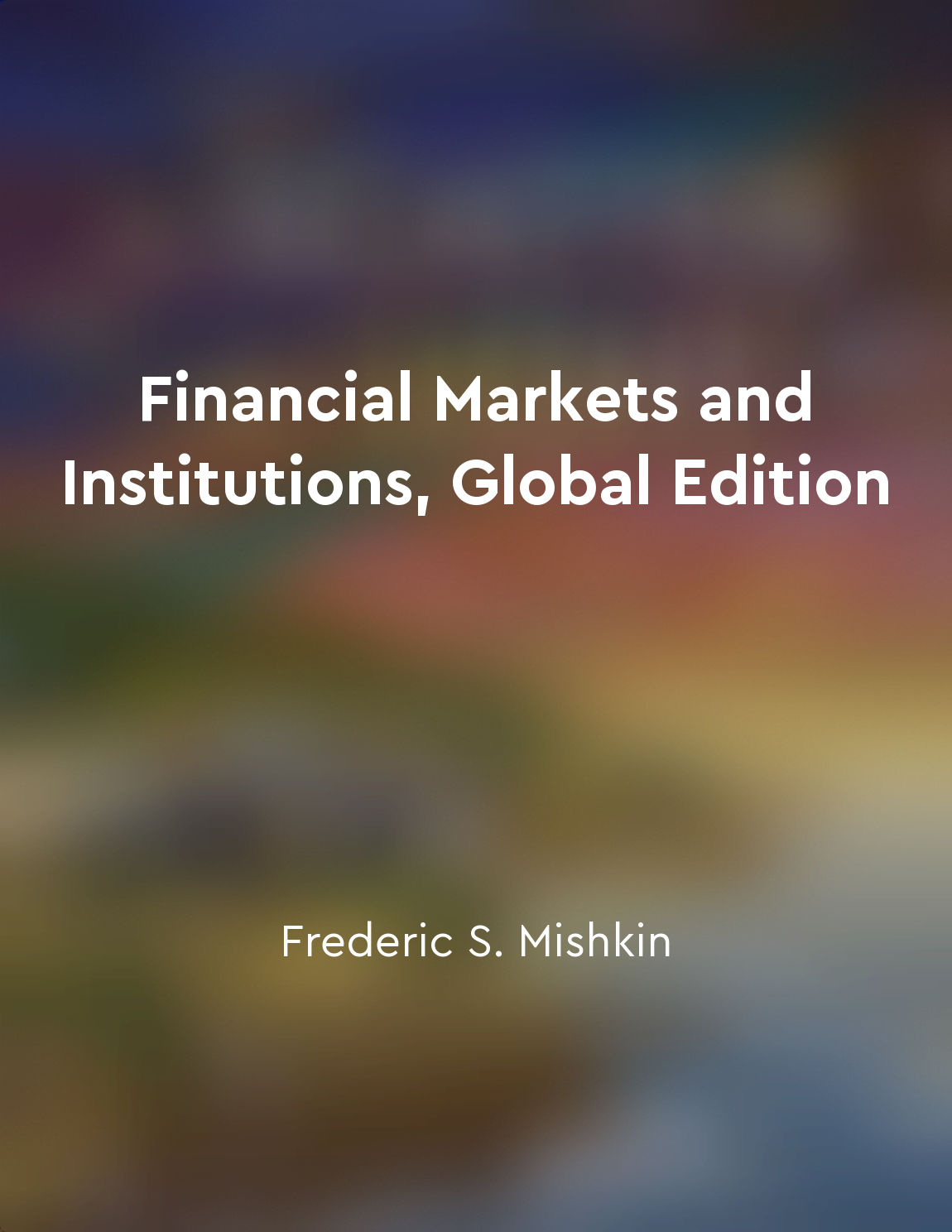Market discipline holds institutions accountable for their actions from "summary" of Financial Markets and Institutions, Global Edition by Frederic S. Mishkin,Stanley G. Eakins
Market discipline is a crucial mechanism that plays a significant role in ensuring that financial institutions are held accountable for their actions. It involves the use of market forces, such as competition and investor scrutiny, to regulate the behavior of institutions in the financial sector. Essentially, market discipline acts as a form of oversight that helps to deter risky behavior and promotes responsible practices within the industry. One way in which market discipline holds institutions accountable is by influencing their risk-taking behavior. When financial institutions are aware that their actions are subject to market scrutiny, they are more likely to act prudently and avoid excessive risk-taking. This is because investors and other market participants are quick to react to any signs of irresponsible behavior, which can lead to a loss of confidence and a decrease in the institution's market value. Moreover, market discipline also incentivizes financial institutions to be transparent and disclose relevant information to the market. By providing investors with accurate and timely information about their activities, institutions can build trust and credibility, which can have a positive impact on their reputation and market standing. This transparency helps to foster a healthy and well-functioning financial system, as it allows market participants to make informed decisions based on reliable information. In addition, market discipline serves as a complement to regulatory oversight, as it helps to fill gaps in the regulatory framework and address potential shortcomings. While regulatory authorities play a crucial role in setting rules and monitoring compliance, market discipline provides an additional layer of supervision that can help to reinforce regulatory requirements and promote accountability. By holding institutions accountable through market mechanisms, regulators can benefit from increased market discipline to achieve their objectives more effectively.- Market discipline is an essential component of the financial system that helps to ensure the stability and integrity of financial institutions. By subjecting institutions to market forces and investor scrutiny, market discipline promotes responsible behavior, transparency, and accountability within the industry. It complements regulatory oversight and serves as a vital tool in maintaining a well-functioning and resilient financial system.
Similar Posts
Money is a powerful tool that shapes our lives and society
Money plays a central role in our lives, shaping our decisions and defining our relationships. It is a tool that enables us to ...
Political pressure and decisionmaking
In the high-stakes world of financial crisis management, political pressure plays a significant role in decision-making. The re...
Public sector plays crucial role in maintaining stability
The stability of a modern industrial society depends to a substantial extent on the actions of the public sector. This is becau...

Lack of accountability breeds misconduct
The idea that no one is responsible for anything is a dangerous one. It creates an environment where anything goes, where indiv...
Government intervention was necessary
The events leading up to the crash of 1929 made it abundantly clear that the unregulated nature of the financial markets was a ...

Interest rates affect bond prices
When interest rates rise, the prices of existing bonds fall. This relationship between interest rates and bond prices is one of...

External sector trade balance FDI trends
The external sector of an economy plays a crucial role in determining its overall performance. One of the key aspects of the ex...
The financial industry profits from the herd mentality of investors
The financial industry is famously adept at profiting from the herd mentality of investors. When a particular investment become...
Financial market collapse is inevitable
The financial world is a complex and at times incomprehensible place. Trillions of dollars change hands every day, based on the...
Game theory analyzes strategic decisionmaking
Game theory is a branch of economics that studies strategic decision-making. It is based on the idea that in situations where t...


